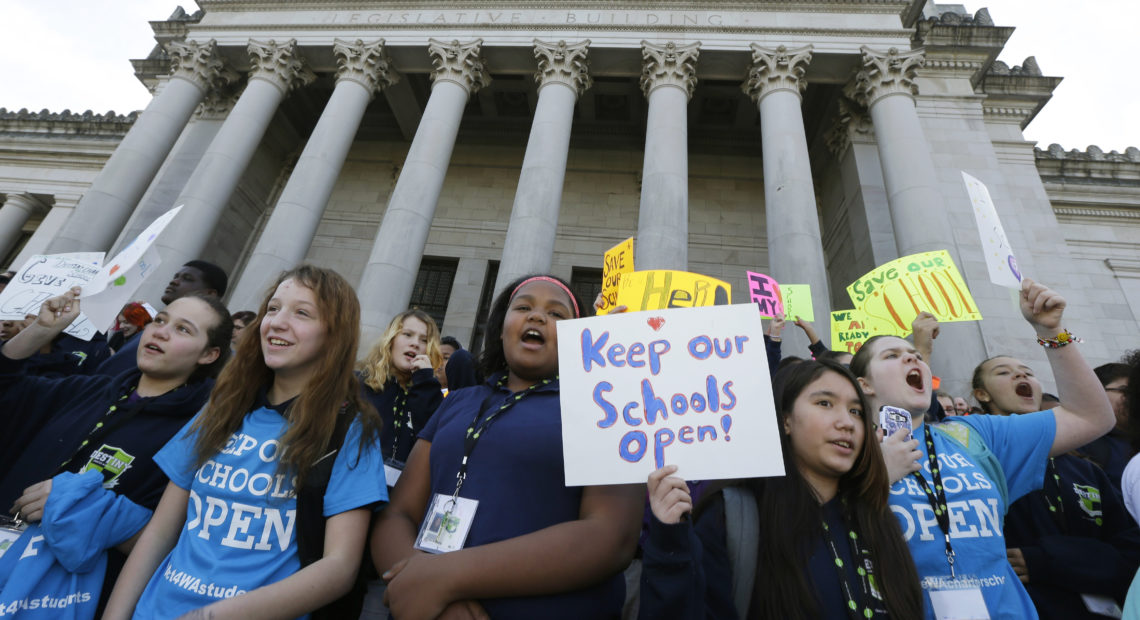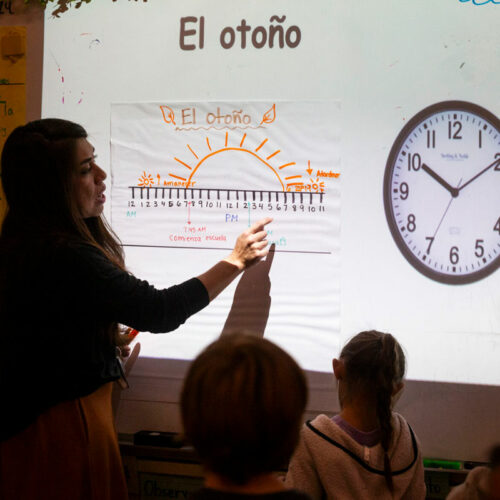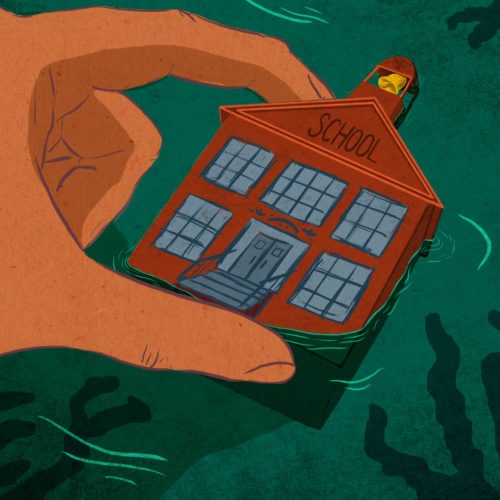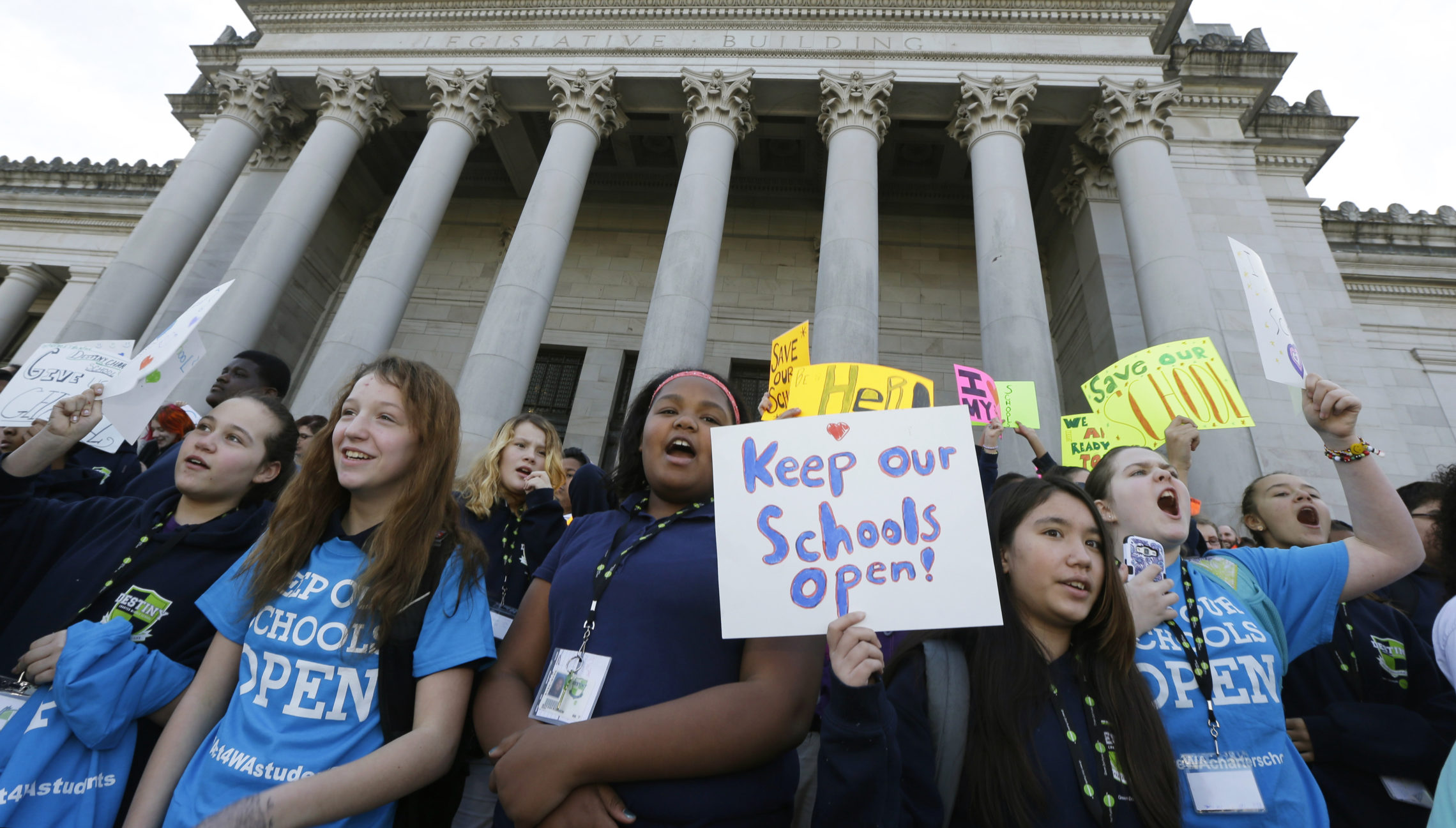
Washington Supreme Court Upholds Most Of Charter School Law
BY GENE JOHNSON / AP
The Washington Supreme Court upheld most of the state’s charter school law Thursday, eliminating the specter that a dozen schools serving about 3,400 students might have to close.
Teachers unions, civil rights groups and others had challenged the charter school law, arguing that using public money to operate alternative, nonprofit charter schools over which voters have no direct control violated the state Constitution.
A majority of the court rejected most of their arguments but struck down part of the law that restricted the ability of charter school employees to unionize.
The Washington State Charter Schools Association cheered the ruling, which appeared to end decades of fighting over the schools in Washington, as a “win for public education” and a “big step forward in the fight to close the opportunity gap that persists in our state.”
Patrick D’Amelio, its chief executive, declined to immediately comment on the part of the law that was struck down, saying the association needed time to review the decision to understand its significance.
“The Washington Supreme Court has given 3,400 students and their families from across our state new hope by affirming that charter public schools will continue to be a valuable part of our public education system,” the organization said in a statement.
Most states allow charter schools. Voters in Washington state rejected them three times, the first in 1996, before approving them in 2012. But the court struck that law down in 2015, saying it violated the state Constitution by diverting money that otherwise would go to traditional public schools.
Lawmakers tried to fix the law the next year, allowing up to 40 charter schools that would be paid for with lottery revenues, rather than out of the state’s general fund.
Critics called that a shell game. The money set aside for charter schools would otherwise have paid for expenses that now must be handled by the general fund — reducing the amount of money available for the state’s 2,300 traditional schools serving about 1.1 million students, they said.
The critics also argued that publicly funded charter schools were against the law because they were not overseen by local, elected school boards and because the law diluted the authority of the state superintendent of public instruction to oversee the charter schools.
In her lead opinion, Justice Mary Yu disagreed. She noted that the charter schools are free and open to all students, employ certified teachers and meet typical public school instruction requirements.
They don’t receive local tax money so there is not as much need for local control through a school board, she said. And Yu rejected the notion that the Washington State Charter School Commission — created to oversee the schools — would interfere with the superintendent of public instruction’s authority.
“In sum, charter schools are not rendered unconstitutional just because they do not operate identically to common schools,” Yu wrote.
She acknowledged concerns that the lottery revenue devoted to charter schools would prove insufficient as the charter system grows and cautioned that a challenge might be warranted if the Legislature uses the state’s general fund to pay for charter schools in the future.
Paul Lawrence, an attorney for the challengers, suggested the state might need another devoted revenue stream to pay for the charter schools, such as a special sales tax. He questioned whether voters would support such a tax when the charter schools serve such a tiny fraction of the state’s students.
Yu took issue for technical reasons with part of the law restricting collective bargaining rights of charter school workers. The law allows them to unionize within a school, but not across schools, the way most teachers unions operate. That amended different state laws without directly saying so and was therefore impermissible, Yu held.
Justices Debra Stephens, Charles Johnson and Sheryl Gordon McCloud joined the lead opinion. Justice Steven Gonzalez and Chief Justice Mary Fairhurst mostly concurred, but said they would have also upheld the restrictions on unionizing.
Justices Barbara Madsen, Susan Owens and Charles Wiggins dissented, saying they would have struck down the charter law for at least one of the reasons cited by the challengers. Madsen insisted that the leeway granted to charter schools for personnel management, curriculum, discipline and academic accountability made local oversight by an elected school board more important, not less.
“The Act creates a parallel public school system that provides a general education, serves all students, and uses public funds, but lacks local voter control or oversight” — and thus violates the Constitution’s requirement that the state operate a uniform system of public schools, Madsen wrote.
The state teachers union, the Washington Education Association, said in a statement it was disappointed with the ruling.
“We still believe it is wrong to divert public funds to privately run organizations that are not accountable to local voters,” the union said.
Copyright 2018 Associated Press
Related Stories:

Multilingual programs in Washington schools promote bilingualism and biculturalism
Guadalupe Zavala teaches her first graders about time in Spanish at Lewis and Clark Elementary School (Credit: Jacob Ford / Wenatchee World) Listen (Runtime 3:52) Read By Reneé Diaz, NWPB &

WA Supreme Court rules state’s Voting Rights Act is constitutional
The Washington Supreme Court denied the appeal challenging the constitutionality of the Washington State Voting Rights Act on the Latino voting rights lawsuit against Franklin County. The Court’s opinion came only a month after the judges heard oral arguments from the parties involved.

Olympia school board president thinks RIF is likely
The Olympia School Board plans to vote tonight on whether to begin a reduction in force (RIF) process. School board President Darcy Huffman said it’s likely the board will approve the process, which would mean staff below a certain seniority level could be let go.
















